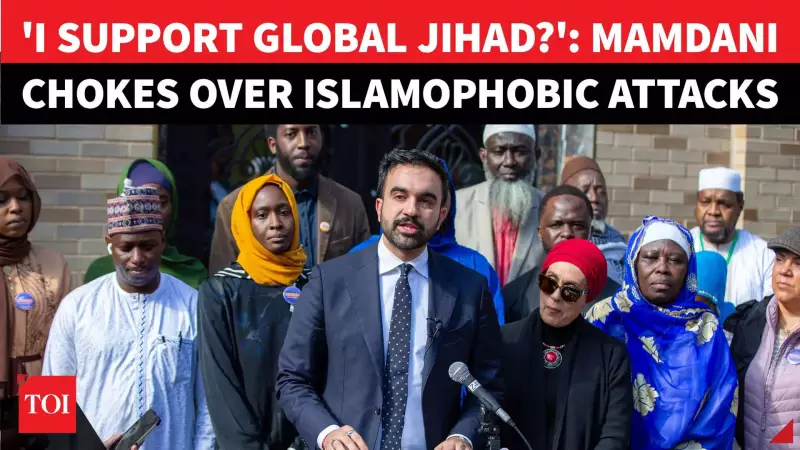
In a stirring political confrontation that's capturing national attention, New York State Assembly member Zohran Mamdani has launched a powerful counteroffensive against Islamophobic attacks targeting his campaign. The Democratic Socialist's bold response is reshaping the dynamics of the New York City mayoral race and sparking crucial conversations about religious tolerance in American politics.
The Breaking Point: Confronting Hate Head-On
Mamdani's campaign had been facing increasingly vicious Islamophobic rhetoric from opponents and their supporters. Rather than maintaining diplomatic silence, the Queens politician chose to confront the bigotry directly, declaring that the era of quiet tolerance is over.
'No more silence' has become the rallying cry of Mamdani's response, signaling a fundamental shift in how political figures address religious discrimination in campaign politics.
Political Courage in the Spotlight
What makes Mamdani's stance particularly significant is its timing during a high-stakes mayoral race. The assembly member isn't merely defending himself personally but is using the platform to challenge systemic Islamophobia in political discourse.
'When they come for one of us, they come for all of us,' Mamdani emphasized in his response, framing the issue as a matter of fundamental democratic values rather than personal defense.
Broader Implications for NYC Politics
The confrontation has reverberated throughout New York's political landscape, with several key implications:
- Setting new precedents for addressing religious discrimination in political campaigns
- Forcing other candidates to clarify their positions on religious tolerance
- Mobilizing diverse communities around issues of representation and dignity
- Highlighting the growing influence of progressive voices in urban politics
A Watershed Moment for Representation
Mamdani's unapologetic stance represents more than just political strategy—it marks a watershed moment for Muslim representation in American politics. By refusing to treat his religious identity as something to be quietly managed, he's challenging longstanding assumptions about how minority candidates should navigate political spaces.
The assembly member's approach has already inspired support from across the political spectrum, with many praising his courage in confronting prejudice directly rather than hoping it will disappear through avoidance.
As the NYC mayoral race intensifies, Mamdani's stand against Islamophobia has positioned him not just as a candidate, but as a symbol of resistance against the normalization of religious bigotry in political discourse.





